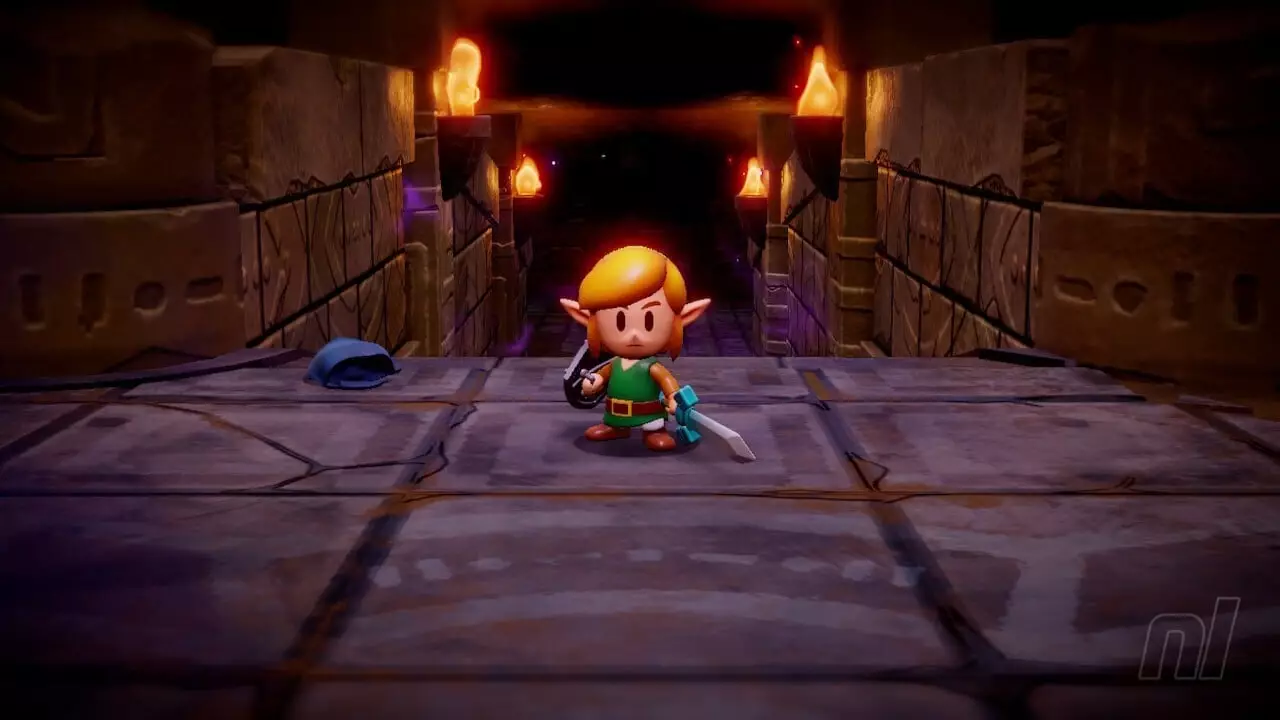The Legend of Zelda franchise, renowned for its elaborate narratives and expansive worlds, has consistently captivated gamers since its inception. Yet, with the latest installment, **Echoes of Wisdom**, we find ourselves presented with a unique twist: Link, the series’ iconic hero, finds himself shrouded in silence. For the first time, not only does he share the spotlight with Princess Zelda as a playable character, but his muteness is also woven into the tapestry of the game’s storyline, providing a fascinating context to his character.
In a groundbreaking move, **Echoes of Wisdom** allows players to step into the shoes of Princess Zelda, marking a pivotal development in the series. Traditionally, Link has been the sole protagonist, characterized by his heroic deeds and quests to save Hyrule. However, with Zelda assuming a prominent role, players are treated to a fresh perspective that diversifies the narrative and engages the player on a new level. This shift not only emphasizes her strength and capabilities as a character, but it also signifies a broader exploration of the lore surrounding Hyrule. Yet, even within this context, the absence of Link’s voice raises compelling questions and implications about his character.
Link’s inability to speak in **Echoes of Wisdom** serves a dual purpose; not only does it highlight his unique circumstances within the game’s storyline, but it also provokes an emotional response from players. As players navigate through the game, they gradually discover the backstory behind Link’s silence. After conquering the first dungeon, players encounter **Lueberry’s diary**, which vividly illustrates how those ensnared by the rifts have experienced significant losses. Link’s loss is particularly poignant—his voice is tragically claimed by the same rifts that threaten the fabric of Hyrule.
This new backstory adds layers to Link’s character, aligning his muteness with a shared experience among the other characters afflicted by the rifts. The connection to the struggles faced by others enhances the stakes of the narrative, forging a deeper bond between Link and the journey he embarks upon. Link’s silence becomes emblematic of his personal sacrifice and the challenges faced by others, inviting players to empathize with his situation.
Interestingly, Link’s portrayal as a mute hero has ramifications that extend beyond mere game mechanics. In previous **Zelda** titles, while Link may not have verbally articulated his thoughts, he communicated through actions and gestures that conveyed emotion and intent. The absence of spoken dialogue in **Echoes of Wisdom** does not diminish his presence; instead, it emphasizes the importance of non-verbal communication. His facial expressions, body language, and situational responses continue to resonate strongly, allowing players to connect with him on an emotional level without the traditional vehicle of spoken words.
Despite the novelty of Link’s silenced persona, it is natural to ponder whether this element enhances or detracts from the gameplay experience. Some long-time fans may yearn for Link to express himself through speech as he has in other titles, but the choice to mute him underscores the narrative focus and prompts a more profound engagement with the story. The emotional weight of his circumstances invites players to invest in his journey, contemplating the ramifications of his loss and the significance of reclaiming his voice.
**Echoes of Wisdom** presents players with a captivating exploration of character dynamics within the beloved **Zelda** universe. Through Link’s muteness, the developers at Nintendo and Grezzo offer a narrative that invites both introspection and engagement, compelling players to consider the weight of silence in the face of adversity. This innovative approach to storytelling, though simple in its thread, creates a remarkably rich tapestry that not only entertains but also challenges convention. Whether players wish for Link to speak again remains a matter of personal preference; however, the charm of this quiet hero undeniably enhances the allure of his timeless journey. As fans, we are left with lingering questions and newfound appreciation for the complexities of communication—whether spoken or silent—in the realm of Hyrule.

